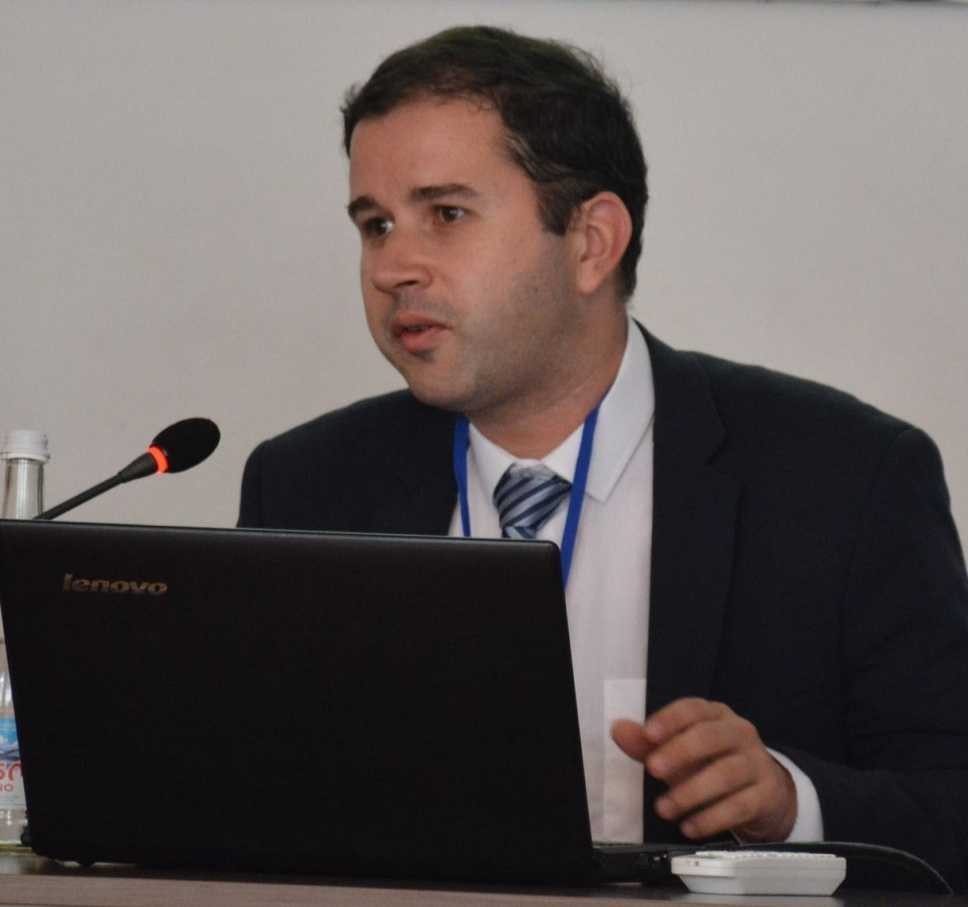Professor Vukićević: Pandemic Puts Science into First Plan

We discussed with the Vice-Rector of the University of Montenegro and Professor of the Faculty of Political Science,Boris Vukicevic, PhD, who is also Chairman of the UMNEEthical Committee, about the impact of the pandemic on international relations, as well as the impact of the implementation of measures against the spread of the COVID 19 virus on science and teaching at the Faculty of Political Science.
UMNE: As a professor of social sciences and humanities majoring in international affairs, how do you view the current situation in the world?
VUKICEVIC, PhD: This is a situation that we have not experienced in world relations since World War II. In fact, in the scope of the coronavirus pandemic, this is an unprecedented event in human history, so it is natural that as such it has already left a strong mark on both international and social relations in general. There is no doubt that the pandemic, as well as its economic crisis and its other consequences, will affect international relations and world politics in the years and decades ahead. We see the dynamics of relations between large countries changing, and at least seemingly weak international organizations and integrations. And the physical closure of borders and mentally brings us back to the so-called. a Westphalian system in which states are singularly isolated above all other entities, and the principle of sovereignty leads states to conflict and closure rather than to integration and cohesion.
Like the earlier difficult times for the world, especially the times of the world wars, the pandemic of the Spanish and the Great Depression, there is room for nationalism, xenophobia, the strengthening of authoritarianism under the guise of efficiency and stability by distributing wealth, turning to a healthier lifestyle, investing in medicine, ecology, etc.
Both teachers and associates, as well as students, reflect on these issues, discuss them in online classes, and soon they will be the subject of diploma, master papers, scientific articles, conferences...
UMNE: To what extent can science be dealt with in a global pandemic?
VUKICEVIC, PHD: I think this pandemic has just put science at the forefront. The pandemic has raised a number of questions that only science can answer. We are witnessing these days that scientists, as has not been the case for a long time, are in the spotlight for both our and the world public. These are first and foremost scientists in the fields of medical and natural sciences, but also others - computer scientists, economists, psychologists, lawyers ... Certainly, the numerous questions that have been raised are also challenging for scholars dealing with political systems and international relations. More and more, as I mentioned above, there is talk of strengthening autocratic regimes, tightening relations between major powers, the impact of a pandemic and the economic crisis on elections in various countries, the European Union's post-crisis perspectives, etc. So, we can say that, in a way, one of the effects of the pandemic is to shift the focus to science because the aim of science is to provide, or at least strive to answer, the questions that are posed to humanity, set up a pandemic. Also, the pandemic has shown us the importance of art. In these times of isolation, we are entertained, but often seek answers to numerous life questions by reading books, watching movies, series or recorded performances, listening to music or "visiting" virtual exhibitions ... Science and art are the very essence of our civilization and I am convinced that they will be a key response to both the challenges of the pandemic and the challenges that the future holds after it.
UMNE: How do you elaborate on attitudes and knowledge about international relations at the Faculty of Political Science, as part of regular teaching with students, now in catch-up measures against the spread of COVID 19?
VUKICEVIC, PhD: At the Faculty of Political Science, working with students has been adapted to new circumstances and the continuity of the teaching process has been ensured, in accordance with the recommendations of the Rectorate and the decisions of the University Senate. Classes are held through video conferencing systems, and there is frequent communication between teachers and co-workers via e-mail, online groups, materials are placed on the University's website and on internet platforms, etc.
Colloquiums, according to the Senate Decision, will be held in cases where the subject teachers have determined that there are conditions for it, and in some cases they will be held after the termination of the Interim Measures, while exams will be held in accordance with the Law, on the premises of the Faculty when circumstances permit.
What is very good about FPN is that hands-on teaching is also continued, through various online forms, of course, where possible. I do not think that direct human communication can replace anything, but in the circumstances, I think we have adequately responded to the challenge.
UMNE: As Chairman of the UMNE Ethical Committee, what do you advise students about academic integrity and studying under these conditions?
VUKICEVIC, PhD: I would urge students, as they have done for the most part, to fulfill their obligations in accordance withprinciples of academic integrity. I know that these extraordinary circumstances may have opened up some possibilities for violating academic integrity, but I am convinced that students know that knowledge and expertise are more important than a degree or diploma itself.
Therefore, while it is harder to focus and concentrate in this stressful time, I believe that students are aware of the importance of gaining knowledge and skills now and more than before, and that this time they will also show responsibility towards academia and society. The Ethics Committee and other competent bodies of the University, which also function during the Temporary Measures, are as they have been in the past in case of a possible violation of the Code of Ethics.

